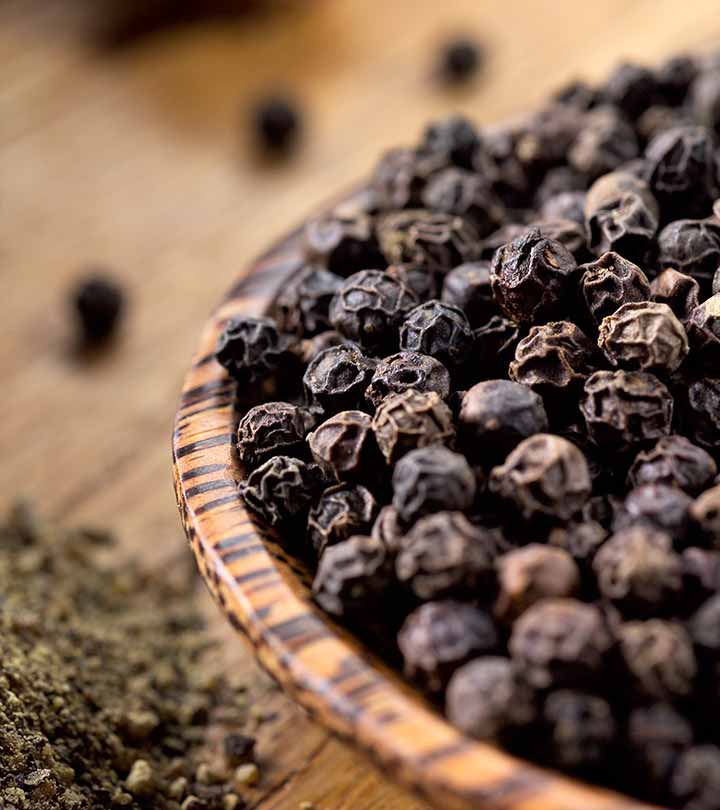The word “pepper” has roots in the word Sanskrit “pippali” for long pepper. The pepper plant is a perennial woody vine growing on supporting trees and poles. It is a spreading vine, rooting readily where trailing stems which touch the ground. Pepper can be grown in soil that is neither too dry nor susceptible to flooding, moist, well-drained and rich in organic matter. Pepper is native to South Asia and Southeast Asia, and has been known to Indian cooking since at least 2000 BCE. There are various kinds of pepper like black pepper, white pepper, green pepper, wild pepper, orange pepper, red pepper and pink pepper.
Nutrtional content-
This spice has Vitamin C, Vitamin A, flavonoids, carotenes and other anti-oxidants that help in removing harmful free radicals and protect the body from cancers and diseases. Pepper contains minerals like potassium, calcium, magnesium, phosphorus, sodium, as well as vitamins such as thiamin, riboflavin, niacin, and vitamin B6. Other nutrients include vitamin E, folate, and vitamin K. Large amounts of pepper also have dietary fibre and a moderate amount of carbohydrate and protein.
Health Benefit –
a) Pepper works with the prevention of cancer, and becomes twice as potent when combined with turmeric.
b) Pepper helps with digestion and stimulates the stomach, which then secretes more hydrochloric acid that helps to digest proteins in food. So a bit of pepper in food will do wonders to help you digest faster.
c) It is also anti-bacterial in nature, and therefore helps to cure cold and cough. It also helps to cure chest congestion, often caused due to pollution, flu, or a viral infection.
d) Rich in Vitamin C, it also works as a good antibiotic.
e) Pepper’s outermost layer contains phytonutrients, which helps to break down fat cells, and also increases metabolism. It also enables blood circulation, and provides the skin with more oxygen.
f) Pepper is known to help in the cure of Vitiligo, a condition where the skin loses pigmentation, and creates white patches in the skin.
g) Pepper helps to deal with depression as well. It stimulates the brain, and helps it to function properly by making it more active.
 How to include pepper in your diet?
How to include pepper in your diet?
Ground dried and cooked pepper, have been used since ancient times, both for flavour and as well as for a traditional medicine. Black pepper is the world’s most traded spice, and is one of the most common spices added to cuisines around the world. The best way to get its maximum benefits is to eat freshly ground pepper, and not by cooking it along with food. A teaspoon of honey with freshly crushed pepper does the trick. One can add it to hot water and eucalyptus oil and take steam. If you eat fresh pepper, and begin to perspire, that’s the pepper helping your body to get rid of excess water and toxins. But you need to control consumption – a pinch in your food is enough. The crushed pepper is one of the best exfoliators nature has provided us. Don’t use it directly though, add a bit of honey, curd, or fresh cream to it.

Word of Caution: Pepper can cause sneezing. Patients who have undergone abdominal surgery should not add excessive pepper to their diet because it can have an irritating effect on the intestines. Black pepper should not be taken in high concentration, and if one sees signs of an allergic reaction, discontinue its use and consult a doctor.
Get Organic Pepper (1kg) at just $19.12 @swadesi.com – https://www.swadesi.com/shop/whole-foods/spices-masalas/b-b-organics-pepper-1kg.html






